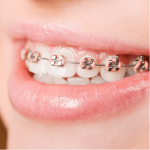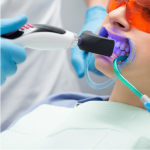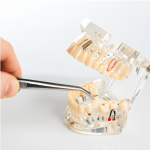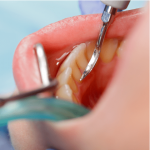
How To Look After Your Dental Implants
Congratulations on having a successful dental implant surgery! As you are recovering, it is very important that you practice good dental hygiene and some precautionary methods to ensure that your implant will not give you complications after the surgery.
We thought we’d give you some practical tips and help answer some of your concerns post-surgery to put your worries at ease!
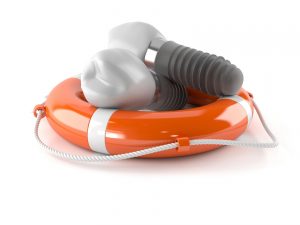
Practicing Good Oral Hygiene
It is really important that you keep your mouth and dental implants clean. A successful oral surgery depends heavily on keeping one’s mouth as clean as possible. Here are some tips:
- Start cleaning your other teeth as usual with a toothbrush, starting from the evening of your surgery. If your other teeth aren’t clean, there is a high chance of infection to the site of surgery.
- Avoid brushing the surgical site for the first few days, but then begin to carefully clean this area with a toothbrush as well once the tenderness of the surgery site permits
- Warm salt mouthwashes are very beneficial for healing in the first week of surgery. Ensure that the mouthwash is not so hot that it scalds and then gargle the solution around the surgical site until it cools.
- Try to keep food away from the surgical area for as long as possible. Rinse following eating to keep the area clear of leftover food to reduce the risk of decay.
- You are advised not to smoke until the wound has healed, as this severely limits healing in the mouth.
Things to Avoid after Implants
It is really important that you keep your mouth and dental implants clean. A successful oral surgery depends heavily on keeping one’s mouth as clean as possible. Here are some tips:
- Take care to only have cold drinks and do not eat until the local anaesthetic has worn off.
- Avoid hot drinks or hot food for the first day and do not swill any liquid over the area.
- Try not to probe the surgical site with your tongue or fingers.
- Do not undertake strenuous exercise for the first 48 hours after your surgery.
Why is there swelling and bruising around the implant?
After your procedure, it isn’t uncommon to find some swelling or bruising within the first two to three days. This is quite normal and will naturally subside after a few days. However, you can help reduce the swelling by using an ice pack.
You can hold the ice pack to the cheek area for a maximum of ten minutes at a time with a twenty-minute break between each icing session. Besides that, sleeping while being propped up slightly with two or three extra pillows can help as well to reduce the discomfort.

Will there be pain after the implant procedure?
You might feel a bit sore for a few days which is normal for any oral surgery but that can be easily managed with the help of painkillers. Your dentist will prescribe some to you. Please refrain from taking beyond the daily dose stated and take your first dose before the local anaesthetic has completely worn off.
However, if you are still experiencing increasing pain and swelling after a few days, please make an appointment with your dentist as soon as possible to check if there is an infection developing or other complications to the site of surgery.
Can I wear by dentures after surgery?
If you have a denture that covers the surgical area, please wear it as little as possible for the first week to protect the surgical site during its initial healing period. Always leave the denture out at night.
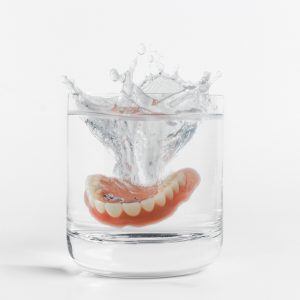
Other Things to Note After Surgery
- In case you’re wondering, the stitches are dissolvable but will remain for about two to three weeks.
- Some minor bleeding after surgery in the mouth is perfectly normal. If this persists, apply pressure by biting down firmly over the area on a dampened gauze swab or clean handkerchief for sixty minutes whilst sitting upright. Do not keep checking or changing the gauze. You should contact us if bleeding persists for any reason after applying pressure in this way.
- If you have been given a round of antibiotics to take after your surgery, please ensure that you complete the entire course.

